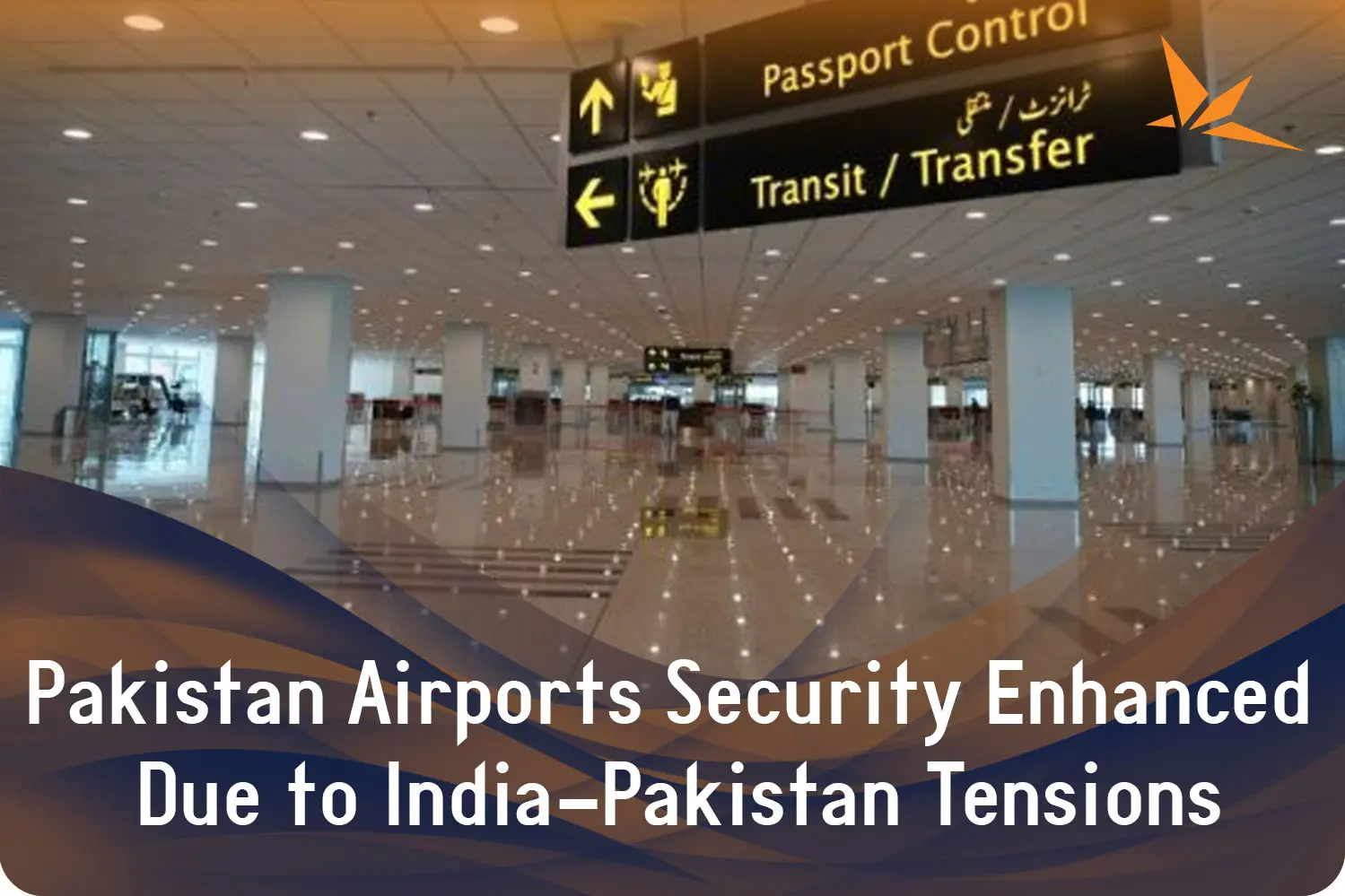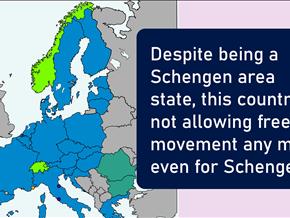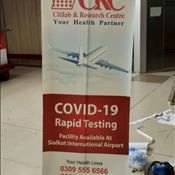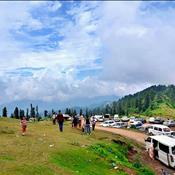
In response to escalating India-Pakistan tensions, the Government of Pakistan has significantly heightened security across all major and regional airports. This move comes in the wake of recent geopolitical developments, particularly the incident in Pahalgam, which has added strain to already sensitive cross-border relations.
As a result, Pakistan airports are now under high alert, with intensified checks, elevated surveillance protocols, and tighter inter-agency coordination. The move is aimed at safeguarding national airspace and protecting passengers, staff, and infrastructure.
Current Situation: Heightened Alert at All Pakistan Airports
Authorities have confirmed that all Pakistani airports are now functioning under an upgraded security regime. Air traffic controllers, airport staff, law enforcement, and intelligence personnel are working in close coordination to monitor and manage every facet of aviation activity, especially flights involving Indian airspace.
“No aircraft will be cleared for takeoff or landing without full documentation and clearance from air defence,” an aviation official confirmed.
Foreign airlines that transit through or originate from Indian airspace are subject to strict monitoring protocols, and all personnel must present valid departmental IDs to access secure zones within airport premises.
Why Is Security Being Tightened Now?
Background on India-Pakistan Tensions
The immediate cause for concern stems from a recent cross-border security incident in the Indian-administered region of Pahalgam. While the full details are yet to be disclosed, the political fallout has been swift and serious, with both countries issuing firm diplomatic responses.
As a result, Pakistan has:
Banned Indian airlines from operating within its territory (a restriction already in place since earlier standoffs)
Increased scrutiny of foreign airlines passing through Indian-controlled airspace
Strengthened coordination between the Airport Security Force (ASF), local police, and intelligence agencies
Top Airports in Pakistan Under Increased Surveillance
The increased security measures apply to every airport in the country, but special attention is being given to high-traffic and strategically important hubs.
Top Airports in Pakistan Affected by New Measures
| Airport Name | City | Security Status | International Flights |
|---|---|---|---|
| Jinnah International Airport | Karachi | High Alert | Yes |
| Allama Iqbal International Airport | Lahore | High Alert | Yes |
| Islamabad International Airport | Islamabad | High Alert | Yes |
| Bacha Khan International Airport | Peshawar | High Alert | Yes |
| Multan International Airport | Multan | Medium Alert | Limited |
| Quetta International Airport | Quetta | Medium Alert | Limited |
Biggest Airport in Pakistan: A Primary Focus
The biggest airport in Pakistan, Islamabad International Airport, has emerged as the focal point of this national security operation. With a capacity to handle over 9 million passengers annually and featuring modern air traffic systems, the airport is central to both domestic and international flight operations.
Security upgrades at Islamabad include:
Installation of additional CCTV surveillance units
Deployment of sniffer dogs and bomb disposal units
Real-time data sharing between agencies
Use of AI-powered facial recognition software for passenger verification
Special Instructions to Air Traffic Controllers
According to sources from the Civil Aviation Authority (CAA), air traffic controllers across all Pakistan airports have received strict new directives. These include:
Requiring pilots to present air defence clearance codes before departure or arrival
Increased scrutiny of aircraft flight paths, particularly those linked to or passing through Indian airspace
Real-time tracking of all international flights with backup communication protocols
Personnel Identification Now Mandatory
In line with the upgraded security plan:
All airport staff must carry valid departmental ID cards
Unauthorized individuals found on airport premises are to be removed immediately
Frequent identity verification checks are being carried out in restricted zones
This measure aims to prevent impersonation or unauthorized access, particularly in critical operational areas such as air traffic control towers, runway access points, and baggage handling zones.
Coordination Between Agencies Enhanced
Security at Pakistan airports is a multi-agency operation. The current protocol involves tight collaboration between:
Airport Security Force (ASF)
Local police departments
Federal Investigation Agency (FIA)
Intelligence Bureau (IB)
Key Travel Advisories for Domestic and International Passengers
All passengers flying into, out of, or within Pakistan should be aware of the following new guidelines:
Pre-Travel Checklist
Arrive at the airport at least 3 hours before departure
Carry valid ID documents at all times
Avoid carrying prohibited items – expect stricter baggage screening
Prepare for longer wait times at security checkpoints
Expect random personal screenings
List of Airports in Pakistan
Pakistan has a robust network of domestic and international airports that support civil aviation and defense logistics. Here’s a comprehensive list of airports in Pakistan, categorized by function:
International Airports
| Airport Name | City |
|---|---|
| Islamabad International Airport | Islamabad |
| Allama Iqbal International Airport | Lahore |
| Jinnah International Airport | Karachi |
| Bacha Khan International Airport | Peshawar |
| Quetta International Airport | Quetta |
| Multan International Airport | Multan |
| Faisalabad International Airport | Faisalabad |
| Sialkot International Airport | Sialkot |
| Skardu International Airport | Skardu |
| Gwadar International Airport | Gwadar |
Domestic Airports
| Airport Name | City |
|---|---|
| Gilgit Airport | Gilgit |
| Chitral Airport | Chitral |
| Dera Ghazi Khan Airport | D.G. Khan |
| Turbat Airport | Turbat |
| Zhob Airport | Zhob |
| Sukkur Airport | Sukkur |
Economic and Aviation Industry Implications
While security remains a top priority, aviation experts warn that prolonged restrictions and increased screening could have an economic impact.
Delays in international flight schedules
Higher operating costs for airlines due to rerouting
Potential decrease in inbound tourism
However, officials at the Pakistan Civil Aviation Authority (PCAA) remain confident that safety comes first.
Public Response and Social Media Reaction
The public reaction to the enhanced security protocols at Pakistan airports has been mixed. Many appreciate the government’s vigilance, while others have expressed frustration over extended wait times and flight delays.
On Twitter, hashtags like #PakistanAirportsAlert and #AirSecurityPK have been trending since the announcement, reflecting both concern and support.
Looking Ahead: What to Expect
Security analysts suggest that the current measures are part of a broader national security framework that may evolve based on future diplomatic engagements between India and Pakistan.
In the short term, passengers and airline operators should remain flexible and stay informed through official channels like:
Pakistan Civil Aviation Authority (www.caapakistan.com.pk)
Airline customer support desks
Local news updates
With tensions simmering between India and Pakistan, enhanced vigilance at Pakistan airports is both a precautionary and protective step. From the biggest airport in Pakistan in Islamabad to remote airstrips in Gilgit and Chitral, the nation’s aviation infrastructure is now operating under a tight security umbrella.
While these developments may inconvenience travelers temporarily, they underscore Pakistan's unwavering commitment to national safety and the secure management of its skies.
;More Travel News
-
 15-Apr-2025Uzbekistan sets date for visa on arrival service for Pakistani tourists.
15-Apr-2025Uzbekistan sets date for visa on arrival service for Pakistani tourists. -
 25-Oct-2023Despite being a Schengen area state, this country is not allowing free movement any more even for Schengen visa holders.
25-Oct-2023Despite being a Schengen area state, this country is not allowing free movement any more even for Schengen visa holders. -
 09-Aug-2021Good News for UAE Residents wanting return to UAE
09-Aug-2021Good News for UAE Residents wanting return to UAE -
 11-Nov-2025Saudi Government Health Instructions for Hajj 2026
11-Nov-2025Saudi Government Health Instructions for Hajj 2026 -
23-Sep-2024Now Foreigners Get FREE Visas to Pakistan. New Policy Aims to Attract Tourism
-
 28-Apr-2020How To Get Pakistan Visa For Foreign Citizens
28-Apr-2020How To Get Pakistan Visa For Foreign Citizens -
 24-Jun-2021A Thailand trip is a wonderful idea
24-Jun-2021A Thailand trip is a wonderful idea -
 08-Jan-2026PIA Resumes Lahore to London Flights After Six Years
08-Jan-2026PIA Resumes Lahore to London Flights After Six Years -
 03-Jun-2023How to find cheap flights in the peak travel season
03-Jun-2023How to find cheap flights in the peak travel season -
 13-Jul-2024Japan's work visa
13-Jul-2024Japan's work visa -
 12-Aug-2020Now It's Time To Boost The Pakistan Tourism Industry
12-Aug-2020Now It's Time To Boost The Pakistan Tourism Industry -
 10-Jan-2022Travel Agency Business in Pakistan 2022
10-Jan-2022Travel Agency Business in Pakistan 2022
